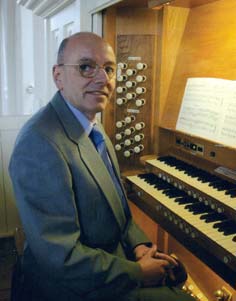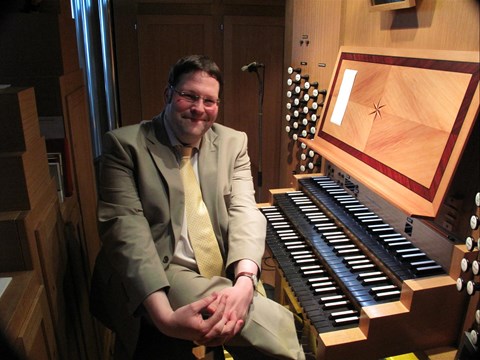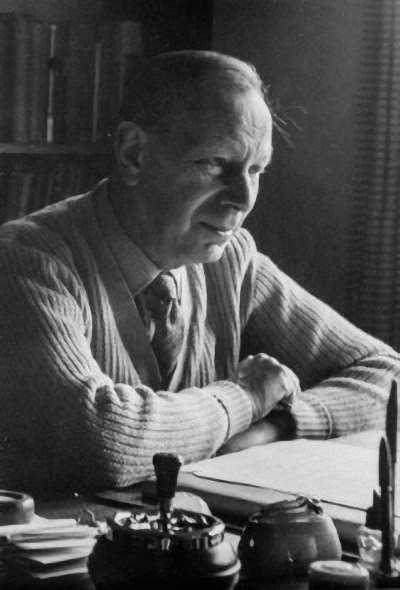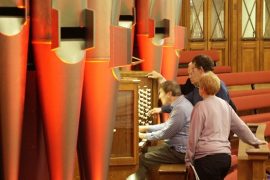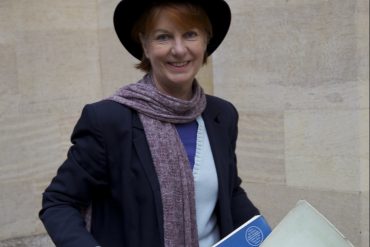Roger Carter studied with Sylvia Gostelow and Christopher Scarf and later with Richard Popplewell, gaining Fellowships from the Royal College of Organists and Trinity College of Music. His subsequent studies have taken him around Europe – in 1984 he was awarded a Belgian Government Scholarship to study with the late Flor Peeters, and in 1988 was invited by Harald Vogel to take part in a recital on the organ of St Bavo, Haarlem. In 1993 he studied early Italian music on organs of the period in Tuscany with Luigi Ferdinando Tagliavini. He is Director of Music at St John’s Church, Harpenden, England, and is often invited to tutor on organ courses, including the RCO St Giles Organ School – I have Roger to thank for some neat solutions to problems with an exam piece last year.
Which piece of music are you studying at the moment and why?
The 350th anniversary of the death of Heinrich Scheidemann has given me the incentive to study some more of his very fine music. In July, I shall be visiting the Katharinenkirche in Hamburg, where he was organist for over thirty years, to hear some of it played on the recently completed historical reconstruction of the organ there. That should be a fascinating experience.
What has been your best experience as an organist?
A difficult question! Probably having the thrilling opportunity to play the organ at St Bavo’s in Haarlem on several occasions, including playing some Weckmann in a composite recital there.
What has been your worst experience as an organist?
Arriving to take part in the Bruges organ competition in the 1980’s and discovering that I couldn’t physically play the first movement of Bach’s 6th Trio Sonata (on the copy of an historical pedal board) using the toes and heels technique which organists of my generation in the UK had generally been taught. This was a big wake-up call, not only to re-learn my technique, but also to re-evaluate related interpretative issues.
What’s the best piece of advice you were given by an organ teacher?
Two very good pieces of advice:
1) When I was a teenager and taking part in an organists’ holiday course at the RAM, the late Leslie Regan said, “Gentlemen(!), at your age you probably think that you are certain about everything, but the older you become, the less certain of anything you will be.” That taught me always to keep a questioning and open frame of mind.
2) To think not only about when notes are released, but also the nature of the release. Harald Vogel is a big advocate of coordinated releases in early music and I found his thinking on this and many other matters very influential in modifying my playing style.
What would be your own best piece of advice for student organists?
For earlier repertoire, often think in other instrumental terms. Go and listen to and watch good ‘period instrument groups’ and notice the nature of their articulation, for example. What comes naturally to a string player, due to using a bow, or to a wind player, because of needing to breathe, is very pertinent to us as organists, where we don’t have the educational experience, to train our feet and fingers, of running out of bow or expiring through a lack of breath!
You might also like:

